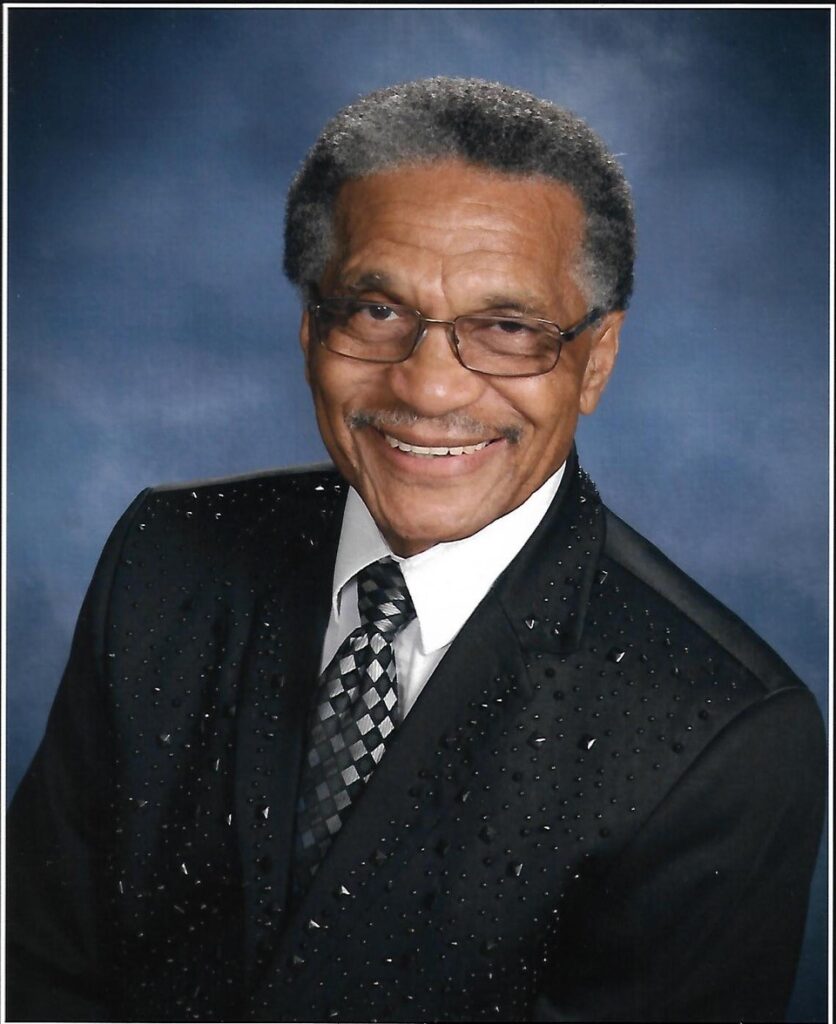Solomon O. Smith | California Black Media
Last week, the Pasadena community lost a towering symbol of leadership and courage, Joe C. Hopkins. A lawyer, activist, publisher, husband and father, Hopkins passed away on Oct. 31 after decades of dedicated service to the community.
Hopkins was a prominent presence in “Dena,” the local nickname for the Pasadena/Altadena area. A resident for over 40 years, Hopkins, and his wife Ruthie, are deeply embedded in their local community, establishing meaningful relationships with people from diverse backgrounds. Their influence extended beyond Pasadena, inspiring and shaping California’s Black political and social circles in numerous ways.
Hopkins was born in Altus, Oklahoma. He relocated to California in 1967, settling in Altadena in 1969. He earned his Juris Doctorate from Glendale University College of Law and in 1982 he began his legal practice which he later moved to Pasadena in 1986.
Hopkins was a man of conviction who fearlessly defended what he believed in. It was his strength of character and clarity of perspective that made him an effective leader.
Hopkins once held the position of president of the West Coast Black Publishers Association and was the president emeritus of the San Gabriel Valley Black Business Association. He founded the Pasadena/Altadena Black Lawyers Association and headed the Pasadena Black Expo from 1990-1992. He started the Pasadena/Altadena Journal, the first and only Black publication in “the Valley,” a region located north of Los Angeles that spans several other San Fernando Valley cities, including Burbank, Studio City, Glendale and Sherman Oaks.

Hopkins’ accomplishments have been acknowledged numerous times: He received the Appreciation for Outstanding Contributions in Business from the Altadena NAACP Branch in 1990, the Citizen of the Year Award from Omega Psi Phi Fraternity in 1992 and served as the Community Grand Marshall of the Pasadena Black History Parade in 2000. In 2006, he was awarded a Certificate of Special Congressional Recognition from Congressman Adam B. Schiff (D-CA-30). Additionally, he has been honored with numerous special recognitions from various city, state and national organizations.
In 2018, Hopkins and his wife were honored as civil rights pioneers and “Unsung Heroes” by the California Legislative Black Caucus (CLBC). The award was presented by Assemblymember Chris Holden (D-Pasadena).
In a statement following Hopkins’ passing, Holden said, “My life and the lives of many other people are forever changed by the impact of Joe Hopkins and his wife Ruthie. I will miss Joe’s fearless leadership and unrelenting dedication to community.”
Hopkins’ personal achievements were substantial, and their enduring impact makes his loss deeply felt by the greater Pasadena community.
Sen. Anthony Portantino (D-Burbank) recalls being inspired by Hopkins’ writing in his book, “I will not Apologize,” a collection of his opinion pieces many consider to be the core of his beliefs.
After reading his book Portantino had to meet the man behind the “no nonsense” words. Hopkins was not easily impressed and quizzed Portantino about whether he read his book. They bonded over that conversation and their mutual desire to create a bridge between higher education in California and Historically Black Colleges and Universities (HBCUs). Together, they encouraged leaders and educators from UCLA to establish the Summer Institute for Emerging Managers and Leaders in 2012. The program’s purpose is to “increase the diversity of graduate students enrolled in the UC business schools.
The program continues to diversify leadership in California graduate schools.
“We connected on a friendship level and continued to talk policy and as the world changed, we kept talking to each other,” said Portantino. “The community has lost a special person, a great dad and a tremendous leader.”
Condolences have been extended to the family from the mayor of Pasadena, Victor Gordo, and other community leaders offering comfort during their time of bereavement.
Hopkins’ son, Yusef Olaitan-Hopkins, remembers his father as more than a political leader, entrepreneur or civil rights leader. He cherishes intimate memories of his father as a caring parent, selflessly dedicated to his family and community. According to Olaitan-Hopkins, the family is overwhelmed by the community’s expression of sympathy.
Hopkins, according to his son, was always ready to defend others with his knowledge of the law, leadership or his presence.
“One of the things my dad used to say was ‘find a good fight and get into it’,” said Yusef. “He was going to do this on his own terms.”
Hopkins’ legacy extends beyond the publications, books, and organizations he started and led. It endures through the loving family he leaves behind, including his granddaughter Ife Olaitan, a social worker, therapist and the mother of his only great-grandchild. For Olaitan it was a privilege to grow up knowing her grandfather and having him get to know his great-granddaughter. She recalls how her grandparents inspired her to follow her own path and do “what’s right,” something she is passing down to her child.
“He was always on the side of fighting for what was right and what was just,” said Olaitan. “He was a man with a stance, and he loved a good fight.”
Hopkins is survived by his wife Ruthie, three sons: Yusef, Omar, and Jamal, as well as seven grandchildren and one great-grandchild.
Messages of condolence to the Hopkins family can be sent to pasadenajournalweb@gmail.com.